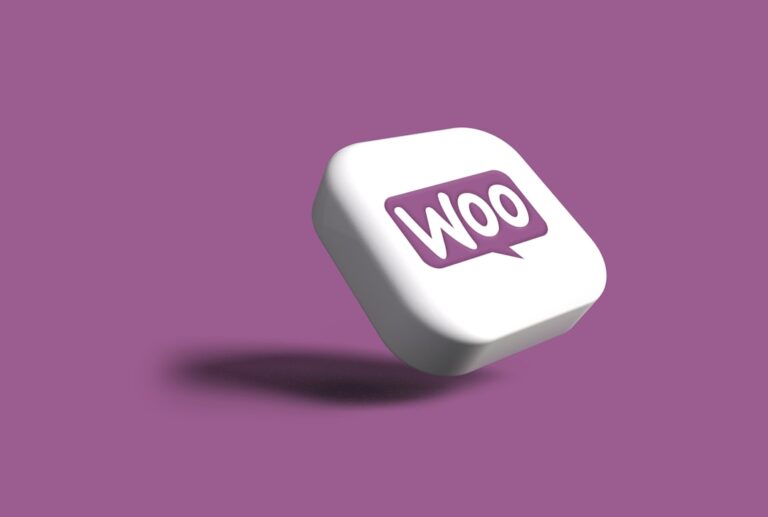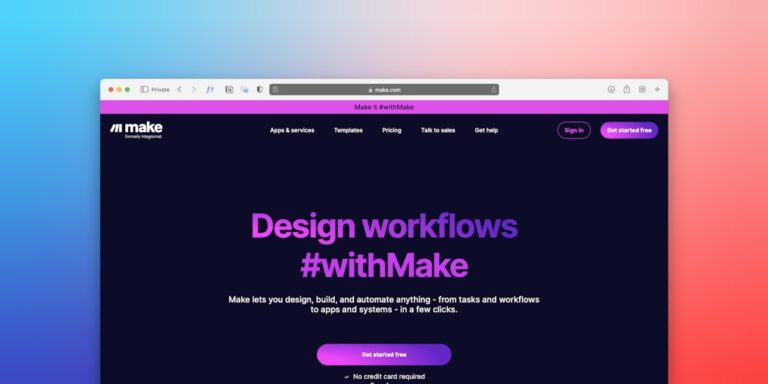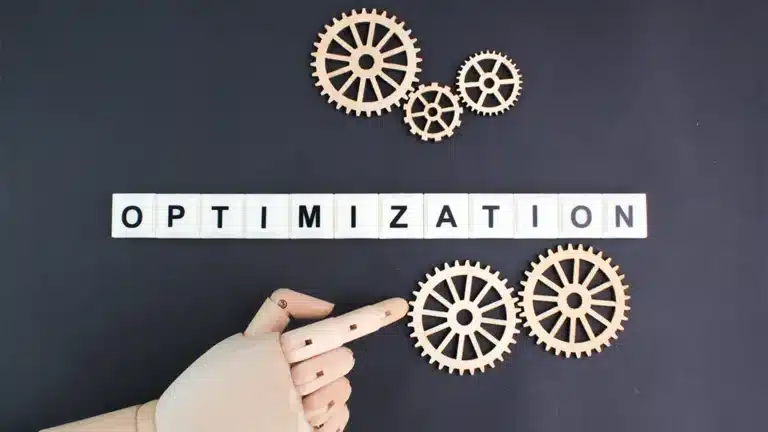Understanding Website Design Cost: What to Expect and How to Budget for Success
Introduction: Why Website Design Cost Varies
When planning a website, understanding the costs involved is essential to setting realistic expectations and making informed decisions. The cost of website design can vary widely depending on factors like the project’s complexity, the specific features needed, and the expertise of the design team. Some websites are simple and straightforward, while others involve advanced functionality, customized features, or a more extensive user experience, all of which can significantly affect the price.
Budgeting for a website goes beyond just thinking about the upfront costs; it’s an investment in your brand’s digital presence and growth. A website isn’t just a digital brochure – it’s a tool to attract visitors, convey your brand’s message, and convert those visitors into loyal customers. By allocating a realistic budget and choosing the right design team, you’re setting yourself up for long-term success. In this article, we’ll explore the key factors that influence website design cost, from the type of design to the experience of the designer, helping you make the best choice for your business.
Factors That Influence Website Design Cost
Several factors can impact the cost of designing a website. Knowing these factors can help you identify what’s essential for your project and what areas might be flexible within your budget.
- Project Size and Scope: The size and complexity of a website are among the biggest factors affecting its cost. A simple, five-page website will naturally cost less than a complex e-commerce site with hundreds of products, multiple integrations, and custom features.
- Level of Customization: The more customized a website is, the more it will cost. While template-based designs offer an affordable starting point, custom-built websites tailored to your brand’s unique requirements come at a higher price due to the time and expertise involved.
- E-commerce Capabilities: E-commerce sites require additional features like product pages, payment processing, inventory management, and user accounts. These added layers of functionality require more design and development work, increasing the project cost.
- Advanced Functionality and Integrations: Features such as membership areas, customer portals, booking systems, or integrations with third-party applications (like CRM or inventory systems) add complexity and increase costs. Each new feature or integration requires additional coding, testing, and maintenance.
- Content Creation Needs: Some businesses need extensive content for their websites, such as custom photography, written content, product descriptions, and blog posts. Professional content creation, particularly for SEO purposes, can add to the overall website cost.
Understanding these factors can give you a clearer picture of why website costs vary and what elements are most crucial for achieving your goals. Discussing these needs with a design agency can help you find a balance between budget and functionality, ensuring you get a site that supports your business without unnecessary expenses.
Types of Website Design Services and Their Costs
Website design services come in different types, each with its own price range. Here’s a breakdown of the main categories:
- Template-Based Design: Template-based designs are pre-built themes that can be customized to an extent. They offer a low-cost option, ideal for startups or small businesses looking for a simple online presence. However, customization is limited, and the website may lack uniqueness and advanced functionality. Typically, template-based designs can range from $500 to $5,000, depending on customization levels and added features.
- Semi-Customized Solutions: Semi-customized websites start with a template or framework but are tailored to reflect your brand’s identity better. This involves custom visuals, slight layout adjustments, and branded content. Semi-customized solutions provide more personalization while keeping costs moderate. These projects usually range from $3,000 to $10,000.
- Fully Custom Website Design: A fully custom website is built from the ground up, giving you complete control over every detail of the design and functionality. Custom websites offer high flexibility, uniqueness, and scalability. Since they are crafted to meet your exact needs, they involve extensive design, development, and testing, leading to a higher cost. Fully custom websites typically range from $10,000 to $50,000 or more, depending on the complexity and features required.
Each type of service comes with its pros and cons. Template-based designs are quick and budget-friendly but may not meet the needs of businesses seeking a distinct and engaging online presence. Semi-custom solutions strike a balance between customization and cost, ideal for businesses that want a personalized look without a fully custom build. Fully custom website design offers the most flexibility and is best suited for businesses with specific requirements, long-term goals, or high functionality demands.
Choosing the right type of website design depends on your budget, goals, and the level of customization you need. For those seeking professional website design services with a range of options, Zen Agency offers tailored solutions to help you achieve the best fit for your business’s unique requirements.
Breakdown of Key Cost Components in Website Design
The cost of website design is often made up of multiple components, each contributing to the overall quality and functionality of the site. Understanding these key components can help you budget effectively and know where your money is going.
- Design and Development: This is typically the largest cost in any website project. Design work includes creating visual elements like layouts, color schemes, typography, and interactive elements, all tailored to your brand. Development costs cover the coding that brings the design to life, ensuring the site functions smoothly on all devices and browsers.
- Content Creation: High-quality content, including written copy, images, videos, and graphics, is crucial to a successful website. Some businesses choose to create their own content, but many opt for professional help to produce engaging, SEO-friendly material that appeals to their target audience.
- SEO Optimization: SEO is critical for visibility in search engines, and integrating SEO practices from the beginning is ideal. SEO costs may cover keyword research, on-page optimization, meta descriptions, and technical SEO to improve site structure and speed.
- Ongoing Maintenance and Updates: Websites need regular maintenance to stay secure, functional, and up-to-date with the latest technology. Maintenance costs can vary depending on the level of support required, covering updates to software, bug fixes, security patches, and periodic backups.
- Hosting and Domain Fees: Hosting provides the server space for your website, and the domain is the unique address where users find your site online. These are usually ongoing costs and can vary widely based on the hosting provider and the type of hosting you choose (shared, VPS, or dedicated).
These components contribute to the website’s effectiveness, performance, and longevity. By budgeting for these elements, you ensure a more complete and professional site that meets both your brand’s needs and user expectations.
Estimating Costs Based on Website Type
Website design costs vary depending on the type of site you’re building. Here are typical costs for different types of websites:
- Small Business Websites: Small business websites generally require only a few pages, such as a homepage, about page, services, and contact form. These simple sites often range between $2,000 and $8,000, depending on customization needs and the specific features included.
- E-commerce Websites: E-commerce sites require added functionality for shopping carts, payment processing, product pages, and inventory management. Because of these advanced needs, e-commerce websites are generally more expensive, often ranging from $5,000 to $30,000, depending on the number of products, custom features, and platform integrations.
- Portfolio Websites: Portfolio sites, often used by creatives and freelancers, showcase work with galleries, project descriptions, and personal branding. Costs for a portfolio website typically range from $1,500 to $6,000, as these sites are visually focused but usually have fewer interactive features.
- Enterprise-Level Websites: Large-scale sites for corporations or organizations often need complex features, multiple integrations, and high-level security. These websites can range from $20,000 to $100,000 or more, given the extensive customization, scalability, and support required.
Knowing the general price range for different types of websites can help you budget realistically and choose features that fit your needs. Each type of website comes with specific functionality, design, and support requirements, which are key factors in determining cost.
How Customization Affects Website Design Cost
Customization is one of the most significant factors impacting website design cost. Custom websites are built from scratch to meet specific business goals, and this level of personalization requires additional time, resources, and expertise. Here’s how customization affects pricing:
- Unique Layouts and Designs: Custom layouts go beyond standard templates, incorporating original designs that align with your brand. Creating unique visual elements tailored specifically for your audience requires more design time, which increases the overall cost but helps make your site stand out.
- Custom Features and Functionalities: Special features, like interactive forms, booking systems, customer portals, or dynamic content, require additional coding and testing. The more advanced the functionality, the higher the cost, as custom features are often complex and need to be integrated seamlessly with the rest of the site.
- Integrations with Third-Party Services: Many businesses rely on integrations with tools like CRM systems, e-commerce platforms, or analytics software. Adding these custom integrations increases costs due to the technical work required to ensure compatibility and smooth functionality.
- Scalability and Future-Proofing: A custom website is often designed with future growth in mind, allowing businesses to add new features or scale up as needed. This scalability requires careful planning and development, which can increase upfront costs but saves money over time by avoiding frequent redesigns.
While customization adds to the cost, it offers valuable benefits, including a site tailored to your unique needs, enhanced user experience, and the ability to adapt as your business evolves. For businesses seeking professional website design services, Zen Agency provides customized solutions that balance high-quality design with the specific goals of each client.
Understanding the impact of customization on website design cost can help you decide which features are essential for your site’s success and which may be optional based on your budget and priorities.
The Role of Experience and Expertise in Pricing
A design company’s experience and expertise are often reflected in the pricing of their services. Established agencies with extensive portfolios and a strong reputation tend to charge higher rates than newer or less experienced designers. This is because seasoned professionals bring a wealth of knowledge to the table, allowing them to create more effective, innovative, and reliable websites.
- Quality and Efficiency: Experienced designers are usually more efficient, reducing the time needed to develop a high-quality site. They know what works and can anticipate challenges, ensuring the project runs smoothly from start to finish. While the cost may be higher, the quality of work and the streamlined process can be worth the investment.
- Specialization: Some design companies specialize in specific industries or types of websites (e.g., e-commerce, portfolio sites, or corporate websites). Choosing a specialist often means paying more, but it also means working with designers who understand your industry’s unique needs and customer expectations.
- Access to Advanced Tools and Techniques: Experienced agencies often have access to advanced design tools, development resources, and best practices, enabling them to deliver a more polished, professional website. The added expertise can enhance site functionality, aesthetics, and SEO performance, contributing to long-term success.
While hiring an experienced agency may come at a premium, it often leads to better outcomes, fewer revisions, and a website that effectively serves your business goals. It’s wise to weigh the value of experience and expertise against the initial cost when choosing a design partner.
Budgeting for Additional Costs Beyond Design
The cost of website design doesn’t end once the design is complete; there are ongoing expenses to keep your site secure, functional, and optimized. Here are some essential costs to consider post-launch:
- Hosting Fees: Hosting is required to make your website accessible online. Shared hosting is a more budget-friendly option, but many businesses prefer VPS (Virtual Private Server) or dedicated hosting for enhanced speed and security. Hosting fees can range from $10 to hundreds of dollars monthly, depending on the type and provider.
- Domain Registration: The domain is your website’s unique address (e.g., www.yourbusiness.com). Domain registration is usually an annual fee ranging from $10 to $50, depending on the domain extension and provider.
- Maintenance and Updates: Regular maintenance keeps your website running smoothly, from updating software and plugins to fixing bugs and improving security. Many agencies offer maintenance packages, which can range from $50 to $200 monthly, depending on the level of support.
- Security and SSL Certificates: Security is essential for protecting user data and preventing attacks. SSL certificates, which encrypt data between the server and the user, are often included in hosting plans but may require an additional fee. More advanced security options may incur extra costs.
- Digital Marketing and SEO: Once your site is live, digital marketing and SEO are vital for driving traffic and achieving your business goals. SEO, PPC, content marketing, and social media are common options, and the budget for these services varies depending on strategy and frequency.
By budgeting for these ongoing expenses, you can ensure that your website continues to perform well over time, providing a positive experience for users and maintaining your brand’s online presence.
Choosing the Right Website Design Partner for Your Budget
Finding the right website design partner involves more than just price comparison. The ideal partner should align with your goals, understand your brand, and offer flexibility within your budget. Here are some tips for choosing a design partner:
- Review Their Portfolio: A company’s portfolio can reveal much about their style, quality, and adaptability. Look for projects similar to what you envision for your website and assess their work in terms of design, functionality, and branding.
- Consider Their Communication and Transparency: Communication is key to a successful project. Choose a company that communicates openly about costs, timelines, and expectations. A transparent team will keep you updated and make the process more collaborative.
- Ask About Customization Options: Some companies offer flexibility with their packages, allowing you to choose only the services you need. This can help manage costs while ensuring you receive a tailored solution that aligns with your goals.
- Evaluate Post-Launch Support Options: A good design partner should offer ongoing support for maintenance, updates, and troubleshooting. Ask about their post-launch services to ensure you won’t be left without help once your site is live.
Selecting the right partner means finding a team that provides high-quality, professional website design services while fitting within your budget. This careful choice can make the difference between a positive, productive experience and one that leaves you over budget and underwhelmed.
Conclusion: Investing in Website Design for Long-Term Value
Investing in website design isn’t just about creating a digital presence – it’s about building a long-term asset that grows with your business, supports your goals, and engages your audience. A well-designed website can be a powerful tool for attracting customers, strengthening your brand, and driving conversions, making the cost of website design a smart investment.
When planning your website budget, remember that quality, customization, and ongoing support are essential elements of a successful site. By understanding the various factors influencing website design costs – from the scope and complexity of the project to the experience of your design partner – you can make informed decisions that support both your short-term needs and long-term objectives.At Zen Agency, we believe in creating websites that deliver lasting value. Whether you’re a small business looking to establish an online presence or an enterprise seeking a highly customized platform, our team offers a range of options tailored to your goals. Ready to get started? Contact Zen Agency today to learn more about how a well-designed website can empower your brand and support your business success. Let us help you make a valuable investment in your online future.

















